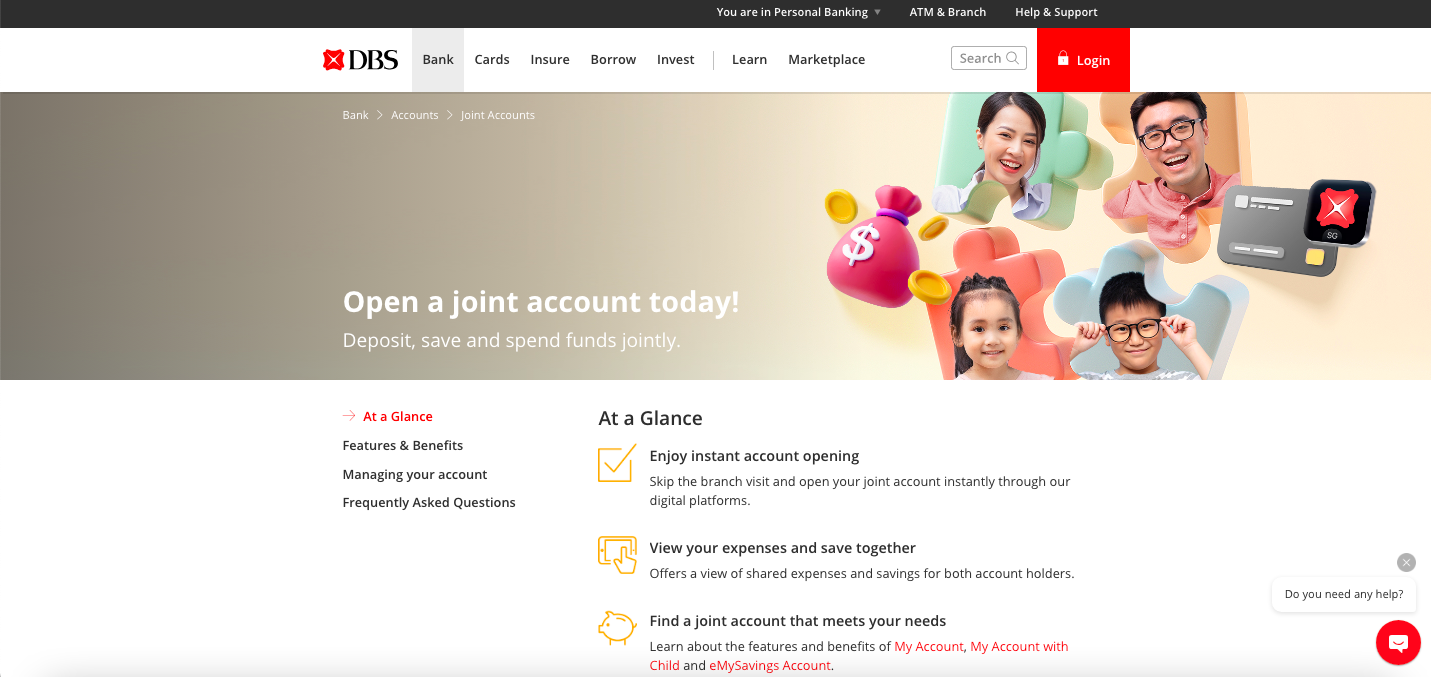So you finally tied the knot with your sweetheart and you’re officially Mr and Mrs, the next big step is to decide in your financial journey is if you should open a joint bank account or not.
Many couples think that it’s a must to show you’re sharing your lives. But wait, don’t rush into it yet because there are a few things you should think about first before taking the plunge.
Understanding joint bank accounts
Joint accounts can help couples eliminate the administrative work after purchases, etc.
Banks may allow you to choose either a “joint account” or a “joint-alternate account”.
With a “joint account”, both of you must agree before doing anything with the money. So if you want to withdraw or transfer money, your spouse has to give you the ‘go’ sign. This can avoid misunderstandings but is sometimes quite inconvenient.
For a “joint-alternate account”, any one of you can use the money without asking the other’s permission. It’s much more convenient but requires a great deal of trust since the other person can do whatever they want with the money.
Before opening a joint account, talk to your spouse and be very clear about how much money each of you will put in, who can withdraw and spend the money, and make sure you are both alright with that.
If you’re sitting on the fence, you can always start with a smaller joint account first to test the waters. Take your time, no rush—after all, marriage is for life.
Factors favoring a joint bank account
Opening a joint bank account with your spouse has its pros and cons, but the pros often outweigh the cons for most newlyweds. Here are some factors to consider:
- More transparency and trust
Having a joint account shows you have nothing to hide from each other since both of you can obviously scan the transactions anytime, anywhere. This can cultivate better trust and financial openness in the relationship.
- Easier to manage household expenses
With a shared account, paying for utilities, groceries, and other household necessities becomes more convenient. No need to fight over whose turn it is to pay or chase each other to transfer the other 50%. Everything can be paid from a single account.
- Shared financial goals and responsibilities
With shared accounts come shared financial goals and duties. It gives both of you a chance to sit down together, look at your combined income and expenses, and come to an agreement on budgeting, saving, and spending priorities. This presents a good opportunity to be on the same boat money-wise and paddling as a team towards common financial objectives.
Circumstances to consider before opening a joint account

Image Credits: The Independent
Of course, there are risks involved. Whether you’re newly married or have been together for a while, opening a joint bank account is a big step. Here are a few things you should think through first before combining your finances:
- Difference in spending habits
If one of you is a big spender and the other prefers to save, having a shared account may lead to arguments over how much goes into savings versus spending. You will need to compromise and be very transparent about your financial habits.
- Outstanding personal debts
If either of you have significant personal debts like loans or credit card balances, it may be better to keep separate accounts until they’re paid off. That way you have more control over how much goes towards your personal obligations each month.
- Uneven income levels
If there is a huge difference in your income, a joint account means the higher earner’s money will subsidize the lower earner. You will need to be comfortable with this arrangement. As an alternative, you can have a shared account for household expenses, but keep separate accounts for personal spending.
- Potential legal issues
In the unfortunate event of a divorce, joint accounts can get messy. It may be difficult to determine who contributed what and split the money fairly. As a precaution, you may want to look into the law that specifies how joint assets will be divided if you separate.
Opening a joint bank account is a big milestone, so go into it with your eyes open. Discuss your concerns openly and make sure you’re both on the same page about how you want to manage your shared finances. If needed, start small by pooling money for essential household expenses before combining everything. At the end of the day, the most important thing is to build trust and understanding with your spouse. If you can get that right, having a joint account will just be one of the many joys of sharing your life. But do it at your own pace, no need to feel pressured just because that’s what most people do. You do you!












